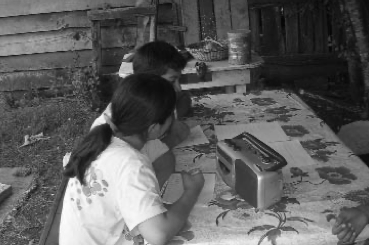Three Students, Three Experiences
Looking at Health Reform in Chile
POLITICAL ACTORS
I was extremely impressed with how successful the Chilean health system has been in improving the health of its citizens despite its limited resources. Its success, however, in many ways have led to one of its current problems: it now has to respond to the chronic health care needs more typical of richer countries without the luxury of a large health budget. I also found it interesting to observe how the various political actors have aligned themselves either for or against the health reforms currently under discussion. I learned how important political analysis and strong communications are in implementing successful health reform strategies. My experience in Chile was extremely rewarding in that it allowed me to develop a deep understanding of the Chilean health system and also provided me with some insight that I will bring with me as continue my career as a public health professional. I hope to return to Chile again in the near future!
__________________________________________________________________________
Karen Pelley is in her second year of the two-year Masters of Science (MS2) in Health Policy and Management at the Harvard School of Public Health (HSPH).
A FIRST-HAND EXPERIENCE
I learned a great deal during this class. Although, I had previously read about health reform in other countries and discussed it in the classroom, I had no firsthand experience with what it was like to be “on the ground,” sorting through information and assessing people’s positions. Being in the middle of the reform process in Chile in the way we were was just like being consultants and it was really exciting. I learned that public health for the “public good” is not a static textbook term but a shifting concept that is actively worked out amongst government groups, NGO’s, physicians and the public. As a family physician, I had the chance to learn how my profession functions in Chile and came to respect the differences in Chilean family practice. It was interesting to see this form of family practice adapt itself to the climate and needs of the Chilean system.
__________________________________________________________________________
Sharmila Chatterjee, MD, is a Masters of Public Health student in the Department of Health Care Management, Harvard School of Public Health.
INCREDIBLE HOSPITALITY
Spending three weeks in Santiago and learning about and watching health policy-making in action undoubtedly was a very unique opportunity. We had incredible access to key players and stakeholders in the health policy-making process. By the end of the program, we had a very good sense of the proposed reforms and their strengths and weaknesses, and more importantly, a new framework for analysis and approaching health sector reform in any country.
Most touching during my stay was the incredible hospitality our hosts constantly showered on us. They answered endless questions, provided mountains of information, and graced us with elegant lunches, warm greetings, and an openness that one typically reserves for family or close friends. And time and time again, I thought that we could learn about much more than health care from our Southern neighbors.
__________________________________________________________________________
Caron Lee is a Masters of Science (MS2) Candidate, Class of 2004, in the Department of Health Policy and Management, HSPH.
Spring 2004, Volume III, Number 3
Related Articles
Poverty or Potential?
Teresa stops me three blocks from Nueva Imperial’s main plaza on a quiet Wednesday morning, eager to chat. She is wearing a light blue sweater and a matching blue headband glowing slightly against her dark black hair.
Editor’s Letter: Chile
I was hesitant to do an issue on Chile when I had other topics broader and richer in content. Although in a way Chile seems like an obvious choice because of the DRCLAS Regional office there, I felt there were other priorities in terms of substance.
Thinking on Children: A Literary Look at Childhood
When William Wordsworth formulated this reversal of parenting, putting children first and parents later, he followed through on a romantic inspiration about innocence being close to…




